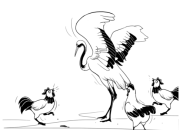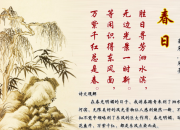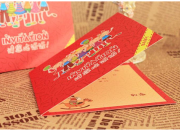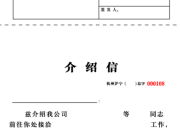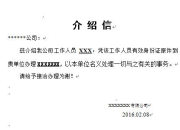初中英语语法时态总结
时间:2021-08-31初中英语语法共有16种时态,那么同学们是否学习了呢?
一、一般时态
1、一般现在时
(1)一般现在时表示没有时限的持久存在的动作或状态或现阶段反复发生的动作或状态,常和副词usually,often,always sometimes, regularly,near,occasionally,every year, every week等连用。例如:
1)The moon moves round the earth..
2)Mr. Smith travels to work by bus every day.
(2)在由after,until,before,once,when,even if,in case,as long as,as soon as,the moment以及if,unless等引导的时间状语从句或条件状语从句中,通常用一般现在时代替将来时。例如:
1)I will tell him the news as soon as I see him.
2)I will not go to countryside if it rains tomorrow.
(3)某些表示起始的动词,可用一般现在时表示按规定、计划或安排要发生的动作,这类动词有:be,go,come,start,depart,arrive,begin,leave等。例如:
1)The plane leaves at three sharp.
2)The new teachers arrive tomorrow.
(4)在由why,what,where,whoever,who,that,as等引导的从句中,也常用一般现在时代替将来时。例如:
1)Free tickets will be given to whoever comes first.
2)You’ll probably be in the same train as I am tomorrow.
2.一般过去时
(1)表示过去某一特定时间所发生的、可完成的动作或状态,常与表示确切过去时间的词、短语或从句连用。例如:
We went to the pictures last night and saw a very interesting film.
(2)表示过去习惯性动作。例如:
1)He always went to class last.
2)I used to do my homework in the library.
(注意与be used to doing短语的区别)
3.一般将来时
1)表示将来打算进行或期待发生的动作或状态。例如:
I shall graduate next year.
2)几种替代形式:
1)be going to +v在口语中广泛使用,表示准备做或将发生的事情。例如:
I’m going to buy a house when we’ve saved enough money.
2)be to +v表示计划安排要做的事,具有“必要”的强制性意义。例如:
I am to play tennis this afternoon.
3)be about to +v表示即将发生的事情。例如:
He was about to start.
4)be due to +v表示预先确定了的事,必定发生的事。例如:
The train is due to depart in ten minutes.
5)be on the point/verge of +v – ing强调即将发生的某种事态。例如:
The baby was on the point of crying when her mother finally came home
二、进行时态
1.现在进行时
(1)表示现在正在进行的动作,常与now,right now,at the mother,for the time being,for the present等连用。例如:
Don’t disturb her. She is reading a newspaper now.
(2)表示现阶段经常发生的动作,常与always,continually,forever,constantly等连用。例如:
My father is forever criticizing me.
(3)表示根据计划或安排在最近要进行的事情。具有这种语法功能的动词仅限于过渡性动词。即表示从一个状态或位置转移到另一个状态或位置上去的动词。常用的有:go,come,leave,start,arrive,return等。例如:
They are leaving for Hong Kong next month.
(4)有些动词不能用进行时,这是一类表示“感觉,感情,存在,从属”等的动词。如:see,hear,smell,taste,feel,notice,look,appear,(表示感觉的词);hate,love,fear,like,want,wish,prefer,refuse,forgive(表示感情的动词);be,exist,remain,stay,obtain(表示存在状态的动词);have,possess,own,contain,belong,consist of,form(表示占有与从属的动词);understand,know,believe,think,doubt,forget,remember(表示思考理解的动词)。但是如果它们词义改变,便也可用进行时态。例如:
1)Tom looks pale. What’s wrong with him?
(look在此为联系动词,意为“显得,看上去”)
2)Tom is looking for his books.
(look在此为实义动词,意为“寻找”)
2.过去进行时
过去进行时表示一个过去的动作发生时或发生后,另一个过去的动作正在进行,或表示过去反复的习惯,常与always,continually,constantly等动词连用。例如:
1)We were discussing the matter when the headmaster entered.
2)Whenever I visited him, he was always writing at the desk.
3.将来进行时
将来进行时主要表示将来某一时刻正在进行的动作,或表示要在将来某一时刻开始,并继续下去的动作。常用来表示礼貌的询问、请求等。例如:
1)This time next day they will be sitting in the cinema.
2)What will you be doing at six tomorrow evening?
4.完成进行时
(现在、过去、将来)完成进行时是(现在、过去、将来)完成时的强调形式,将放在完成时态部分讲述。
三、完成时态
完成时态通常表示已完成或从事的动作。它可分为:
1.现在完成时
(1)现在完成时用来表示对目前状况仍有影响的,刚刚完成的动作(常与yet,already,just连用),或者过去某一时刻发生的,持续到现在的情况(常与for,since连用)。例如:
1)I have just finished my homework.
2)Mary has been ill for three days.
(2)常与现在完成时连用的时间状语有:since, for, during, over等引导出的短语;副词already, yet, just, ever, now, before, often, lately, recently等;状语词组this week (morning, month, year), so far, up to now, many times, up to the present等。例如:
1)I haven’t been there for five years.
2)So far, she hasn’t enjoyed the summer vacation.
3)There have been a lot of changes since 1978.
(3)完成时态可用在下列结构中:
This (That, It) is (was) the first (second…) time +定语从句;This (That, It) is (was) the only (last) + n +定语从句;This (That, It) is (was) +形容词最高级+ n +定语从句。如果主句的谓语动词是一般现在时,从句的谓语动词通常用现在完成时;如果主句谓语动词是一般过去时,从句谓语动词通常用过去完成时。例如:
(1)This is one of the rarest questions that have ever been raised at such a meeting.
(2)There was a knock at the door. It was the second time someone had interrupted me that evening.

